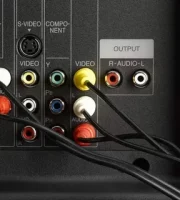Yacht insurance is not as expensive as repairing or replacing it if something goes wrong. It’s not just about the cost of the insurance policy; it’s about finding the best deal for your circumstances. That’s why before you sign up for yacht insurance, there are several factors you should consider to make sure that your policy is cost-effective and benefits you in the long run. Yacht insurance can be confusing because every policy has different features and exclusions, but rest assured that once you realize what to look for, it isn’t that hard.
1- Yacht Insurance is Essentially Marine Insurance
Yacht insurance is marine insurance, and it covers your vessel while it is in use or at rest, whether it is docked or sailed. Marine insurance comes with several options or “ riders, “one of which is “ hull “ – the part of the boat that makes contact with water. Another is “ liability “ – the coverage that protects you if someone sues you for damages or injuries caused by the boat. Marine insurance is cheaper than non-marine insurance because it covers less.
2- What’s Included in Your Basic Yacht Insurance Policy?
The base policy is the minimum amount of coverage you must have to own a yacht legally. You will need the bare minimum to register, which will be the most expensive option. It is also the most detailed coverage but might not cover all your risks. The standard policy is the most common yacht insurance policy. It will protect the vessel and its equipment against all marine dangers or hazards and any crew members injured while on board. Standard yacht insurance also covers hull repairs, loss of use, and extra living expenses if the yacht is damaged or unable to be used temporarily. It will also cover some legal costs in the event of a dispute.
3- The Excess and Deductible
The excess is the amount you will pay towards a claim, regardless of whether it comes from a claim made against you or a claim you make. It is a common feature in yacht insurance policies and can vary depending on the company that you work with. The deductible is the claim amount that must be paid out before the insurance company begins paying.
4- Marine and Non-Marine Coverage Options
Marine coverage protects you from damages caused by an accident or incident. Non-marine coverage protects you from theft or damage.
5- Buying a New or Used Yacht
There is a vast difference between buying a new or used yacht. If you buy a new yacht, you get full commercial coverage. If you buy a used yacht, you have to downgrade to a standard policy, even though the yacht may be almost identical to the one you purchased.
6- Decide on your Requirements Before you Buy the Right Policy
Remember that deciding on your requirements is the first step to getting the best yacht insurance policy. You must know what you want from your policy and what you need it to cover before you can shop for it. Conduct research and talk to a few different insurance agents or brokers. Compare other policies and companies. Ask them specific questions about their coverage and what they will and will not cover. If you know what you need, you can find the right policy at the right price.
Make sure you know your risk factors, decide on your requirements, and compare different approaches to find the best deal for your circumstances. With the correct information, shopping for yacht insurance can be surprisingly easy.






